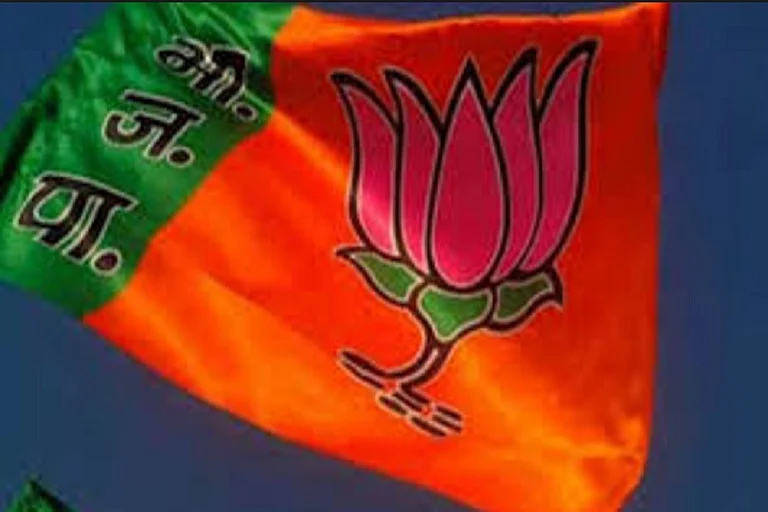It seems inevitable: in death as in life, controversy continues to pursue Kamala Das (Surayya), Kerala’s beloved poet and short-story writer. In her lifetime, she had revelled in it with impish glee. So, when a journalist’s account of Kamala Das’s conversion to Islam and her unfulfilled desire for reconversion back to Hinduism goes viral on social media, we wonder about its veracity. It has all the ingredients of an intriguing plot: music, romance, religion, rejection, death. The controversy might even be linked with a biopic (in the making) that will feature Vidya Balan in the lead role. Not just that, there seems to be an assembly-line of documentaries and books, all eager to market her.
The 2013 column on Kamala Das, also known as Madhavikutty, was written by Leela Menon, the chief editor of Janmabhumi, a Malayalam newspaper run by the BJP. In it, Menon professes her undimmed love for Kamala Das, saying how each time she wears the ring the poet gifted her, her beautiful face and her laughter come back with immediacy. Menon claims she was a confidante and had known the feisty writer for long. So Menon was taken aback when, in 1999, the 65-year-old Kamala Das announced at a press conference that she would convert to Islam. Menon later learns, according to her version, that the real reason was that she wanted to marry M.P. Abdussamad Samadani, then 40, former MP and present MLA from Kottakkal.
Anyway, Menon, then with The Indian Express, rushed to Das’s flat in Kochi to find a Muslim priest converting Kamala Das to Kamala Surayya, who then donned the burqa. According to Menon’s column, Samadani had invited Kamala Das to his Kadavu residence, where he seduced her and promised to marry her if she converted—but never kept his word. Spurned thus, Kamala Das had wished to reconvert, but her eldest son, Madhav Das Nalapat (Monu), convinced her that if she did so, Muslim extremists would not only kill her, but her children and her grandchildren too. “In fear, Kamala Das remained in Islam, though she was a Krishna devotee and thought of herself as Radha,” says Menon.
When Outlook met Leela Menon, she embellished her story with more salacious details. “I asked Kamala once why she wanted to marry Samadani. She replied that he sings beautiful ghazals and has nice teeth. Samadani had invited her to his residence in Malappuram. When she went to the river to bathe, Samadani followed her there, lifted her and carried her to his bedroom and made passionate love to her.” When asked if she believes this is true, Menon laughs and says she has no clue. Menon, who is working on Kamala Das’s biography, titled Ente Kamala, says both Nalapat and Samadani have threatened to sue her if she publishes it, fearing it would have incriminating details about the way they behaved with the poet.
Samadani tells Outlook over the phone that the entire story is fictitious. Menon and her publication, he says, are trying to create a rift in Kerala’s secular society. “There is no truth...Kamala Das herself had denied it. Now that she’s dead, she cannot deny this. Leela Menon wrote the article after her death. What relevance does this have now? I had met Kamala Das a few times to discuss literary matters. The conversations were intellectual and my wife accompanied me.... I was like a son to her and she signed her books for me as ‘Amma’. How can it be any other way?” As Menon recounts, it was on Samadani’s wife’s invitation that Kamala Das visited their residence in Malappuram. But Samadani says she dropped in to see him when she was passing through Malappuram and “as a great writer my family welcomed her”. He adds: “The story about me singing ghazals to her is total nonsense.”
Kamala Das aka Madhavikutty’s book, Ente Katha (My Story), with its explicit sexual fantasies of a married Nair lady, created a storm in the ’70s. For decades, Malayali readers believed it to be true. Then, one day, the writer dismissed it as fiction. She had purportedly told Menon, “Sex sells; that’s why I write about sex.” Menon says she was an innocent, beautiful woman with a great sense of humour who simply spoke her mind. But after her conversion to Islam, Menon alleges that the Muslim community kept her under surveillance and she was forced to live behind the burqa. “When she was unwell, she went to stay in Pune with her youngest son and from there she called me and said she had shed her burqa and was in mundu and veshti. Later, she said her son Monu had insisted that she remain in burqa. When we visited, she asked me and my friend to chant Krishna songs; she died hearing the Narayana Narayana chant from her help, Ammu.” Menon says, “I wanted her body to be buried under the neermathalam tree in her ancestral home, as she had wished. But her body was taken in a procession and buried in the Palayam mosque in Thiruvananthapuram.”
K.L. Mohana Varma, a writer who collaborated with Kamala Das on the novel Amaavasi two years before her conversion decries how the media and publishers have sensationalised her life for higher sales. “What is portrayed by the media is not the real Madhavikutty. She was a rare writer, a poet and a dreamer. There are very few writers like her in Kerala. She was much above religion, politics and even philosophy. She had a rare quality of dreaming like a two-year-old and visualising it as a 20-year-old poet.... If there is heaven, she is watching us and I can hear her telling me: ‘Varma, see how childlike these grown-ups are. Don’t tell them anything. Let them enjoy and be happy at my expense. They have very little in life to be happy about’.”
Even her family says Menon’s story is untrue. Nalapat, her eldest son, rubbishes the column. “My mother Kamala Das never wanted to return to Hinduism. For whatever reason, Leela Menon has been influenced by some politicians. My mother was a strong-willed woman; nobody could stop her from doing what she wanted, not even her immediate family. This is an insult to my mother and an insult to the memory of an independent woman. It is also a way of insulting the Muslim faith, saying she converted for sex. As for the story of her love for Samadani, my mother was a beautiful woman and she must have flirted with hundreds of men, but she clearly knew the boundaries. She never said she was a saint.”
Nalapat, in fact, has another explanation altogether for the conversion. His parents had adopted two Muslim boys, to whom she used to read the Quran for many years, he says. “The change happened over a period of time and she decided to change. It is ridiculous to say I dominated her; in fact, she dominated me and I loved her for that. Menon has adopted the same line as the writer Merrily Weisbord (author of The Love Queen of Malabar) and purely for publicity.” Nalapat says he never filed a case against Weisbord and neither is he going to bother with Menon. “We are liberal people.... Menon may not have read the articles I’ve written against Wahabism from 1991, for which I have got a few death threats.”
Kamala Das’s youngest son, Jayasurya, custodian of the copyright to her writings, says from Pune that she was buried in the Palayam mosque and a neermathalam tree was planted near her grave, as per her wish. “She was with me for two-and-a-half years before her death and never expressed a desire for reconversion. Leela Menon even visited her in Pune; I think she’s hallucinating. For my amma the biggest religion is love and she wrote about true love and true affection. She was interested in various holy books and learnt the script to read the Quran. She had a tremendous sense of humour and it is quite possible that she created this plot for a great story. We grew up on such stories...usually it was 95 per cent fiction and five per cent truth. It is surprising Leela fell for this.” Was Leela Menon unwittingly taken for a ride by stories woven by a poet? Kamala Das, as always, will have the final laugh.


























